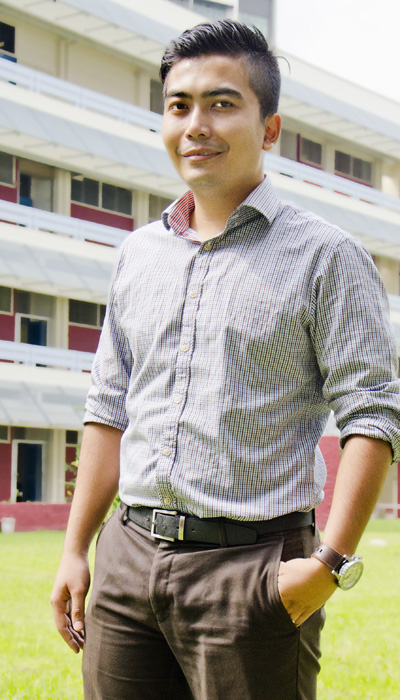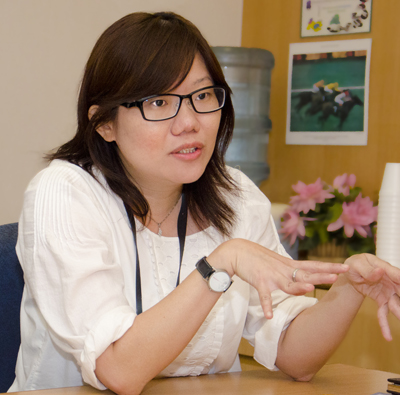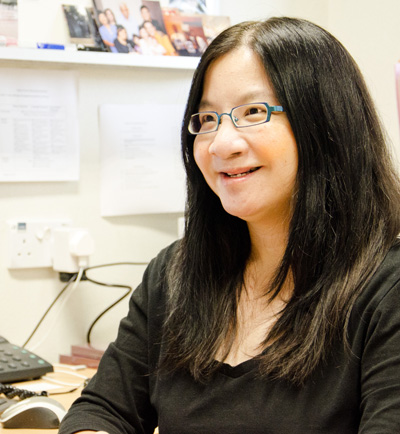Young Children’s Voices in Mathematical Problem Solving
Contributed by Dr Ho Siew Yin and Sng Wei Qin Abbie, from NTUC First Campus, for SingTeach Virtual […]
Read More
For Social Studies, students are educated not just for knowledge and skills, but also citizenship. To deepen students’ engagement in the subject, teachers, policymakers and researchers work together to craft the new secondary Social Studies curriculum that will be implemented from 2014 onwards.
 Like many learners today, Mr Fairoz Sugianto’s students aren’t content with just passively absorbing content in class anymore. They get restless. They need something more. “If someone tells me something’s boring, I have to do something about it,” says Fairoz, a Social Studies teacher at Yuhua Secondary School.
Like many learners today, Mr Fairoz Sugianto’s students aren’t content with just passively absorbing content in class anymore. They get restless. They need something more. “If someone tells me something’s boring, I have to do something about it,” says Fairoz, a Social Studies teacher at Yuhua Secondary School.
“I don’t want them to walk away thinking, after their 4 years of education, that Social Studies is the most boring subject.”
Instead, he wants his students to think of Social Studies as the most useful subject they study in school. “It’s the pride of the Social Studies teacher! I have to be better. I have to be relevant.”
It’s introducing them to how geographers think, inquire, and produce knowledge about the world that we inhabit.
– Fairoz Sugianto, Yuhua Secondary School
It was this passion for the subject that made Fairoz an “SS Champion”, a group of teachers identified by MOE to advocate the possibilities of inquiry-based learning in their classrooms.
Fairoz and his colleagues came up with something to “stretch” their students: An inquiry project where students took on the role of a journalist and gathered public opinion on hot-button issues such as immigration and national defence.
The students certainly felt challenged. “When told they were required to interview people and conduct surveys, they felt, ‘Isn’t this something you do in polytechnics or even in universities?’
There was an initial feeling of being overwhelmed by the requirements,” he recalls. But by the end of the project, the students were surprised by what they could do. “They said that they never knew they had the courage to interview people,” says Fairoz.
The students were sometimes amused by the very diverse perspectives of others when it came to contentious topics such as the transportation system. But this diversity of views was exactly what Fairoz wanted them to experience.
“While I may provide multiple perspectives in the classroom, the students may think: ‘This teacher purposely constructed this perspective for us in class.’ But when they went out and interviewed a foreigner who said, ‘Oh Singapore’s transport system is much better than my country’s!’ it’s really authentic. There’s nothing like that in the classroom.”
What the teachers and students of Yuhua Secondary experienced is very much in the spirit of the new Social Studies secondary syllabus that will be implemented in 2014 for the Normal (Technical) stream (NT) and in 2016 for the Express and Normal (Academic) streams.
 Inquiry-based learning will be the primary focus of the new syllabus. Through this approach, students will learn by investigating a question or problem. Skills such as asking pertinent questions, collecting evidence, analysing data and crafting explanations to answer questions lie at the heart of the inquiry approach.
Inquiry-based learning will be the primary focus of the new syllabus. Through this approach, students will learn by investigating a question or problem. Skills such as asking pertinent questions, collecting evidence, analysing data and crafting explanations to answer questions lie at the heart of the inquiry approach.
But doesn’t it sound scientific?
The thinking processes in the Humanities can be as rigorous as the sciences. It’s just that many don’t realize it, says Ms Marilyn Lim So-San, the Senior Head of Humanities Branch, Curriculum Planning and Development Division (CPDD) in MOE.
The inquiry approach thus works very well for subjects like Social Studies. It gives shape to the more “fuzzy” thinking processes of the Humanities, and this in turn helps students to hone their thinking skills.
“We’re looking at developing critical thinkers who have a strong sense of belief that their points of view and unique understanding of the world would create value, and would contribute towards collective understanding,” says Marilyn.
– Marilyn Lim So San, Curriculum Planning and Development Division, MOE
This is something that Dr Ho Li-Ching from NIE agrees with wholeheartedly. She was invited to be a member of several Social Studies curriculum committees because of her extensive research and experience in this area.
“Inquiry allows students to not only think about important issues from a more critical perspective, but it also teaches them how to find out the answers themselves,” she says.
“It’s not just the content knowledge now. I think Humanities education has moved beyond that, and rightly so.”
Li-Ching’s research has shown that NT students need to be engaged more fully with Social Studies. A former Social Studies teacher herself, she is especially keen to improve their educational experience.
While some people wonder if inquiry is suited for these students, Li-Ching isn’t worried. “It’s my firm belief that they can do it. You might have to scaffold it a bit more, you might have to simplify it and give them a bit more support, but it’s not something that’s beyond them. Research has shown that young children, even in primary schools, are able to do these activities.”
To this end, she has worked closely with Marilyn and her team to develop a curriculum for NT students which she describes as “very interesting and potentially challenging”.
“I think it’s going be a lot more engaging as well. It’s focused on inquiry and allows students to get out of the classroom to explore and acquire some of the necessary citizenship skills, but in a less intimidating manner.”
For Marilyn and her colleagues at CPDD, having constant conversations with researchers like Li-Ching and teachers like Fairoz is crucial for making the new curriculum work. “There’s actually no other way of designing, developing and implementing a curriculum that will make sense to practitioners!” she says.
For example, the opinions and expertise of colleagues like Li-Ching were sought and carefully considered. “The influence of research on syllabus design is direct,” Marilyn notes.
 “What I do is also to ensure the recommendations that researchers make are feasible and realistic in the context of the classroom and the school.”
“What I do is also to ensure the recommendations that researchers make are feasible and realistic in the context of the classroom and the school.”
Professional development (PD) is another area where research, policy and practice meet.
Last year, Professor Keith Barton from Indiana University conducted a series of workshops for the CPDD team, NIE lecturers and SS Champions. These Champions will support NIE lecturers in training other teachers in subsequent PD workshops.
“There was that process of creating a common understanding of what we want to see happen in the Social Studies classroom and how we see inquiry panning out there,” says Marilyn. “Already, within the workshop setting, there’s interaction and conversation between the three worlds.”
She found the workshops to be extremely beneficial for everyone involved. “What CPDD had learned from the workshops would inform the way we design our resources, and inform the way we design subsequent rounds of PD,” Marilyn notes.
The SS Champions, in turn, brought back what they have learned to share with their teacher colleagues and to inform their existing teaching practices.
– Ho Li-Ching, Humanities and Social Studies Education Academic Group
Already, the ongoing conversation between researchers, policymakers and practitioners is bearing fruit, right in the classroom. Fairoz talks about how his students were chased away by some interviewees but continued to approach people from all walks of life.
“The students felt happy that they applied something what they had learned in the classroom to part of their daily lives. They never knew that part of Social Studies is finding out more about people’s perspectives and what their thoughts are on social issues,” he says.
A Humanities education without this kind of real-life experiences would limit the way they perceive the world, he says. To him, Social Studies is not just an academic subject.
“My personal conviction is when you talk about Social Studies, you’re talking about citizenship education, and creating students who are well-informed, so they make appropriate civic decisions when the time comes for them to do so.”
Li-Ching echoes that sentiment when asked what she hopes from the inquiry approach in the new Social Studies syllabus.
“Empowerment is a key thing here. And I think the new syllabus is more engaging because it goes beyond the traditional text-based, content-heavy instruction,” she says. “It allows students to move beyond the confines of the conventional classroom and to acquire important citizenship skills.”
The stakes are high when we are educating students for knowledge, skills and also citizenship.
And this is why conversations among researchers, educators and policymakers are so important. Fairoz, Marilyn, Li-Ching and many others in education will continue to collaborate, discuss and debate, so that our students may get the quality education they deserve.